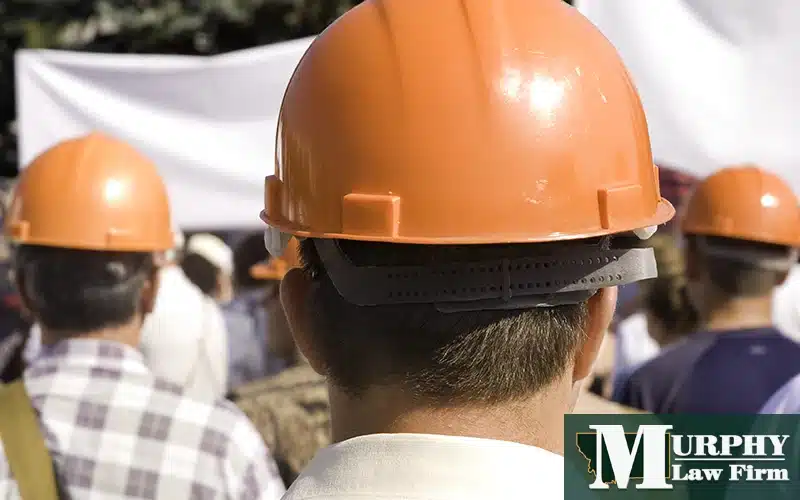
Facing discrimination in Montana? Understand how the Human Rights Act protects you against discrimination and how to file a claim with the Human Rights Bureau.
Experiencing discrimination can be deeply unsettling, but knowing your rights and the steps to take can empower you to seek justice. Under the Human Rights Act, Montana residents are protected against discrimination based on factors like race, sex, disability, and more. This legislation ensures your right to work and live without prejudice and offers legal pathways to address grievances.
If you believe you’ve been discriminated against, filing a complaint with the Montana Human Rights Bureau is a crucial first step.
This article will guide you through the process of filing a complaint, explain what to expect during the investigation process, and outline your rights and potential compensation under the Act to ensure you’re fully informed and prepared to take action.
What is the Human Rights Act in Montana?
The Human Rights Act in Montana, outlined in Title 49, recognizes the right to be free from discrimination as a civil right. Key provisions include the right to obtain and maintain employment without discrimination and the right to the full enjoyment of accommodations, facilities, and privileges at any place of public resort, accommodation, assembly, or amusement.
What are the protected classes under the Montana Human Rights Act?
Under the Montana Human Rights Act, protected classes include any individuals discriminated against based on the following:
- Age
- Marital status
- Physical or mental disability
- Race or color
- National origin
- Religion
- Sex (which encompasses pregnancy, maternity, sexual harassment, and sexual orientation)
Additional protections are provided for familial status, specifically in housing, political ideas in the context of government services or employment, and vaccination status in employment, government services, and public accommodations.
These protections aim to ensure equal rights across various facets of public and private life.
What is the Montana Human Rights Bureau?
The Montana Human Rights Bureau is a state agency responsible for enforcing anti-discrimination laws in Montana. It operates under the Montana Department of Labor and Industry.
The Bureau investigates complaints related to discrimination in employment, housing, education, and public accommodations. It also handles cases involving retaliation for reporting or opposing discriminatory practices.
The Bureau’s goal is to ensure all Montanans have equal access to employment and other opportunities without facing unlawful discrimination. They provide a formal process for filing complaints, investigate allegations, and work to resolve disputes through mediation or legal means when necessary.
How To Respond to a Toxic Work Environment
Understand your rights in a hostile workplace in Montana.
How do I file a discrimination lawsuit in Montana?
If you’re considering a discrimination lawsuit in Montana, your first step is to file a complaint with the Montana Human Rights Bureau. If the case is within the jurisdiction of the Bureau, an interview with an investigator will be arranged.
If, during this discussion, the investigator determines illegal discrimination might have occurred, they will collect the necessary details over the phone, and a formal complaint will then be drafted for you, the charging party, to sign.
What is the statute of limitations for the Montana Human Rights Act?
In order to proceed with a discrimination complaint in Montana, the complaint must be submitted to the Bureau within 180 days from the date of the alleged discriminatory act.
Within 10 days of filing, the respondent (the business or organization being accused) will be notified of the complaint.
What happens during a Human Rights Bureau investigation?
During the investigation, an investigator is assigned to review the case to determine if illegal discrimination occurred. They will collect a statement from the respondent and send it to the charging party for a response.
They may also gather additional information, inspect the site, or hold an informal meeting where both parties can present their sides. The goal is to help both parties reach a voluntary resolution without assigning fault.
The investigation is required to be completed within 180 days, or 120 days for housing-related cases.
If a resolution isn’t reached, the investigator provides a “Final Investigative Report” to all parties. This report recommends whether there is “reasonable cause” to believe illegal discrimination occurred or “no reasonable cause,” meaning the evidence doesn’t support that conclusion.
How are Montana discrimination cases resolved?
If the investigator issues a “reasonable cause” finding, the Montana Human Rights Bureau will try to resolve the case through conciliation. This process may involve:
- Arranging compensation for any losses incurred by the charging party
- Ensuring employment opportunities are available to them
- Altering any practices that are negatively impacting protected classes
- Taking further steps to eradicate discrimination
If conciliation fails, the case goes to a public hearing managed by the Department of Labor and Industry. A hearing examiner conducts this hearing like a non-jury trial, following strict evidence and procedure rules.
After the hearing, the examiner issues a “Final Agency Decision” that determines if discrimination happened and may award monetary damages and other relief. However, this decision can be appealed to the Montana Human Rights Commission.
Is Montana a Right-to-Work State?
Understand your rights under Montana law after an injury at work.
What compensation is available through a Human Rights Bureau discrimination case?
Compensation through a successful Montana Human Rights Bureau case can include compensatory measures such as:
- Lost wages (back pay)
- Future earnings if reinstatement isn’t feasible (front pay)
- Coverage for benefits like retirement contributions and health insurance premiums
Additionally, parties might agree on non-compensatory provisions like reinstatement, promotion, or reasonable accommodations, along with affirmative actions like training on discrimination laws or policy revisions.
Emotional damages for humiliation or distress may also be sought, although punitive damages are not permissible.
Should I hire an attorney to help with my discrimination case in Montana?
Yes, hiring an attorney can be very beneficial if you are involved in a discrimination complaint with the Montana Human Rights Bureau. An experienced attorney can help you navigate the complexities of discrimination laws by drafting your complaint, gathering and presenting evidence, and negotiating during the conciliation process.
Additionally, if the case proceeds to a public hearing, an attorney can advocate on your behalf, using their expertise to argue your case and ensure your rights are protected. If a satisfactory resolution is not achieved through this process, an attorney can also assist you in filing a claim in district court to pursue further legal action.
Were you the victim of illegal discrimination in Montana? Murphy Law Firm can help!
If you’ve experienced discrimination at work in Great Falls, Montana, please know that you don’t have to face this challenge alone.
At Murphy Law Firm, our dedicated attorneys have more than 75 years of combined experience in workers’ compensation and disability discrimination law. We understand the complexities of discrimination cases and are committed to fighting for your rights and ensuring you receive fair treatment under the law.
Contact Murphy Law Firm today for a free consultation, and let us help you get the respect, justice, and compensation you deserve.
References
TITLE 49. HUMAN RIGHTS – Table of Contents, MCA. (n.d.). leg.mt.gov. https://leg.mt.gov/bills/mca/title_0490/chapters_index.html





